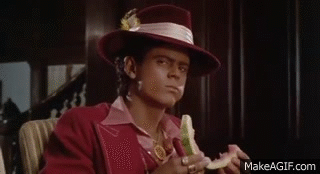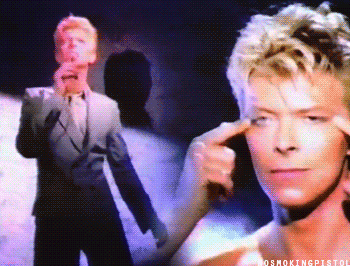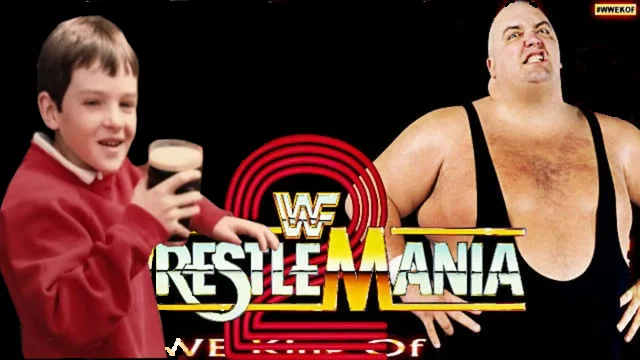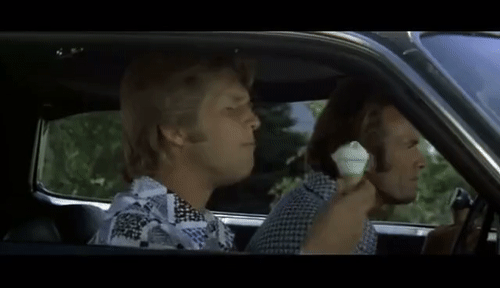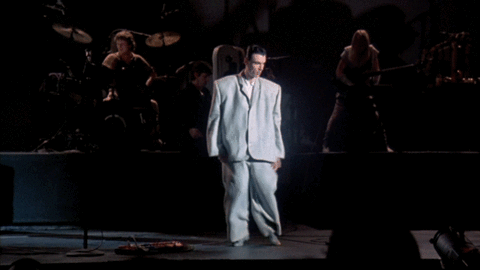The Five Spot: Five Hit Movies From The 80's That Wouldn't Fly Today
Despite all of the pseudo-philosophical debate on either side of the ledger, while discussing the sociological benefits or collateral damage brought about by what we commonly now call political correctness, particularly during a presidential election year, the era and context we exist in will always ensure public sensibilities and pop culture sentiment be an ever-evolving organism.
For better or worse (in the case of the five flawed hit films here more than likely the former) there are certain kinds of entertainment vehicles that we used to let soar across our culture's celluloid horizons during the eighties, as TWA jets once did across our skies, that nowadays would, in the words of The Who’s legendary drummer Keith Moon, who never lived to see the decade in question, “go over like a led zeppelin”.
Let The Five Spot take you on a little trip down memory lane to the 1980’s, a formative era for members of the generation just old enough to not qualify as millennials, in order to examine a few examples of stuff we flocked to see then, that wouldn’t fly now.
Please feel not only free but welcome, in fact, encouraged, to add your two-cents and agree/disagree with any of our nominees, or better yet, nominate additional flicks in the woefully underused Wudder “Comments” section towards the bottom of the page.
We do not bite, nor claim that these five come close to representing a comprehensive list.
So without further ado, we welcome you to read, scroll, and play away…
The Toy (1982)
I was young enough, probably six or seven, at the time of seeing this one to fully miss the highly suspect subtext of this film in the first go-round. Considering this movie was being both green-lit while also shot during an era when someone born in the year of the Civil Rights Act of 1964 would not yet have been of legal voting age, maybe America was young enough to not really get it either. Then again, I highly doubt it.
I'm sure Richard Pryor, who we talked about last week being the stand-up comedy GOAT as well as one of the more insightful comedic minds of all-time and sells the hell out of this scene, understood the pitfalls he was attempting to leap across with this movie's content. However, as I'd later come to learn about the late great Richard Pryor, when it came to making movies very few that he made were ones he actually believed in or enjoyed. Many more times he appeared to be mailing it in, while far too often like he is in this clip, looking scared.
Cocaine is a helluva drug, as his contemporary Rick James famously said.
An expensive one too, we might add.
I don’t actually believe racially problematic films produced by Hollywood are something our country has graduated past, any more than we’ve outgrown racism itself.
Look no further than Halle Berry being the only black woman in the century-long history of the Academy Awards to win Best Actress, for a film in which her fat son getting hit by a car makes her feel compelled to whip 'em out, for a sweaty bout on the floor and the couch, with the white-supremacist prison guard who pulled the switch to put her chubby son's daddy, Puffy, to death in the opening scene.
Still, something as overt as this little silver spoon, spoiled young son of toy company CEO Jackie Gleason saying “I want the black man!” in the tone of a white man's burden version of Veruca Salt, being played for laughs would probably go over as well as someone attending mass in a pin-drop quiet church while loudly passing gas.
The Blue Lagoon (1980)
There are certain movies that came out at the dawn of the 1980’s but really represent the last remaining vestiges of U.S. cultural mores from the 1970’s. Raging Bull came out in 1980 and promptly tanked at the box office, despite critical praise and certified classic status today. The Martin Scorsese black-and-white film about the haunted and terrifying menace that was former middleweight champ Jake LaMotta in a sense signaled the end of the “auteur” style of gritty 1970’s cinema that began before the ‘70’s, with the 1967 dual landmarks of Bonnie & Clyde as well as Easy Rider.
Famed French writer/director Louis Malle’s Pretty Baby (1978) was part of this earlier era, a time when rock fans readily accepted that Led Zeppelin’s Jimmy Page liked his girlfriends to be underage. The film upped the ante even from Scorsese’s own Taxi Driver when it comes to the subject of child-prostitution with 12-year-old star Brooke Shields being asked to make even more, um, sacrifices than we saw from 12-year-old Jodie Foster in the role that yielded a best supporting actress Oscar nod two years prior.
In some ways it can be said that Brooke Shields entire career was based on kiddie-porn of sorts, from the Calvin Klein ad campaign fetishizing her chasteness in a way that later inspired Britney Spears’ career, the aforementioned controversy surrounding Pretty Baby and then perhaps most famously crystallized by 1980’s The Blue Lagoon. Shields may have entered American pop culture’s consciousness in the 1970’s but in many ways, not least of which was her close association with Thriller-era Michael Jackson, or the fact that she had her own Barbie doll, she was the ultimate 1980’s style of star.
Look at this trailer or even just the poster and its tagline slogans, as it strives to feign importance, while at the same time promising to titillate. The things that might now be considered objectionable about The Blue Lagoon, are almost too long to list: the depiction of the “dark, forbidden, sinister” natives with their strange rituals on the other end of the deserted island, the fact that the two young lovers characterized in this flick are first cousins, Brooke Shields making this movie in a perpetual state of semi-nudity at 14 with a male co-star (Christopher Atkins) who was nearly 21, or really even just the creepiness of the dude on the voice-over explaining all of this with such gravitas.
In 1980 though? Top 10 Box Office Gold.
Soul Man (1986)
Okay, if we’re keeping it real, a movie called Soul Man starring Pony Boy (C. Thomas Howell) from The Outsiders in blackface, was actually met with a reasonably high degree of skepticism even back at Peak Reagan Era during the time of this film’s theatrical release. None of that flack stopped this flick from being a healthy box-office hit.
But nowadays?!? Anyone who still sits thru this film is much more likely to say "hol' up" than “it holds up". Even its trademark catchphrase chuckle from the trailer which states “this is the eighties, it’s the Cosby decade” is now um, shaded in a new light. The fallout from this film later might have contributed Howell’s star dimming. Or it could have just as easily been simply his own wooden acting, and inability to age out of teen fare in non-awkward fashion, like a less charismatic version of his fellow three-part-name-bearing peer, Anthony Michael Hall.
Meanwhile Howell’s maintenance to this day that the film was important or groundbreaking in its message, while almost on some level an admirable stance for its sheer chutzpah, or possibly sincerely misguided conviction, in light of this film’s silly sitcom-y tone feels akin to claiming that Just One of the Guys prophesied our recent trans-gendered bathroom controversy, rather than simply being the movie version of Bosom Buddies, or Jack Tripper pretending to be gay in Three’s Company.
Private Lessons (1981)
Gender double-standards certainly haven’t evaporated, or even eroded in the quarter century since this misguided cradle-robbing, creepily laugh-lacking, supposedly comedic sex romp first hit theaters. The societal inclination to toss an adolescent girl a life raft if she enters into intimacy with a grown man, while at the same time give a teenage boy doing the same with a grown woman a high-five, still exists on some fundamental social level.
That being said, in the midst of all the recent stories of predatory female teachers engaging in illegal sexual relationships with students over the subsequent decades, it’s fairly hard to see a film that plays these adult/adolescent scenarios for laughs still actually being able to play in Peoria nowadays. The closest we’ve come to this since the 80’s would be in the more satirical social commentary of the Gus Van Sant/Nicole Kidman vehicle To Die For, or the high-minded dramatic Nazi backdrop of The Reader starring Kate Winslet.
Perhaps the most disturbing thing about Private Lessons, starring soft-core-porn French superheroine Sylvia Kristel of Emmanuelle fame, whose cultural contributions to cinema during the eighties cable box-boom resulted in many pubescent sore wrists and supposed diminished eyesight, is how bizarrely unfunny it is. TV’s WKRP In Cincinnati, and star Howard Hesseman’s portrayal of Johnny Fever, may not have given its audience many guffaws, but it didn’t supply us with any of the awkward gasps that his sociopath chauffeur does in this retroactive atrocity of a horn-dog-teen romantic comedy.
Blame It On Rio (1984)
American film might have the market cornered on wrong-headed racially thematic fare all by themselves, but when the subject of questionable sexually-centered content comes up in American films, there’s a good chance we got some help from the French in bringing the flick in question into fruition. Blame It On Rio, like Private Lessons or The Blue Lagoon before it, is no different in that regard.
Blame it on Rio, based on the French film Un moment d'égarement released seven years prior, may not have been as big a box-office bonanza as some of the other hits on this list but it certainly had an incredibly long shelf life as far as sex farces go, as a fixture on premium movie channels for the rest of the decade.
The movie was also at least partially responsible for getting Demi Moore’s career off the ground, a bizarre reward for her unremarkable turn as Michael Caine’s daughter being the only character operating with a moral compass over the course of their misguided vacation.
Caine himself will likely never cite it as a career highlight, but suffered no real fallout for his lecherous portrayal, since he shortly thereafter went on to be nominated for an Oscar a year after its release in Woody Allen’s Hannah and Her Sisters, so his turn as the misbehaving Matthew Hollis became a mere footnote. Perhaps Woody, quite possibly relating to Blame It On Rio’s subject matter in a very personal way, felt a civic duty to lend some directorial polish after the release of this perverse and proverbial turd.
As for the career path of then-seventeen-year-old starlet Michelle Johnson, who won the right in court to do her own nude scenes while still underage at the time of the film’s shooting in Rio Di Janero, well, let’s just say it sometimes takes more than an au natural swim in the ocean to wash away the stink from a particularly pungent perfume of poo.

